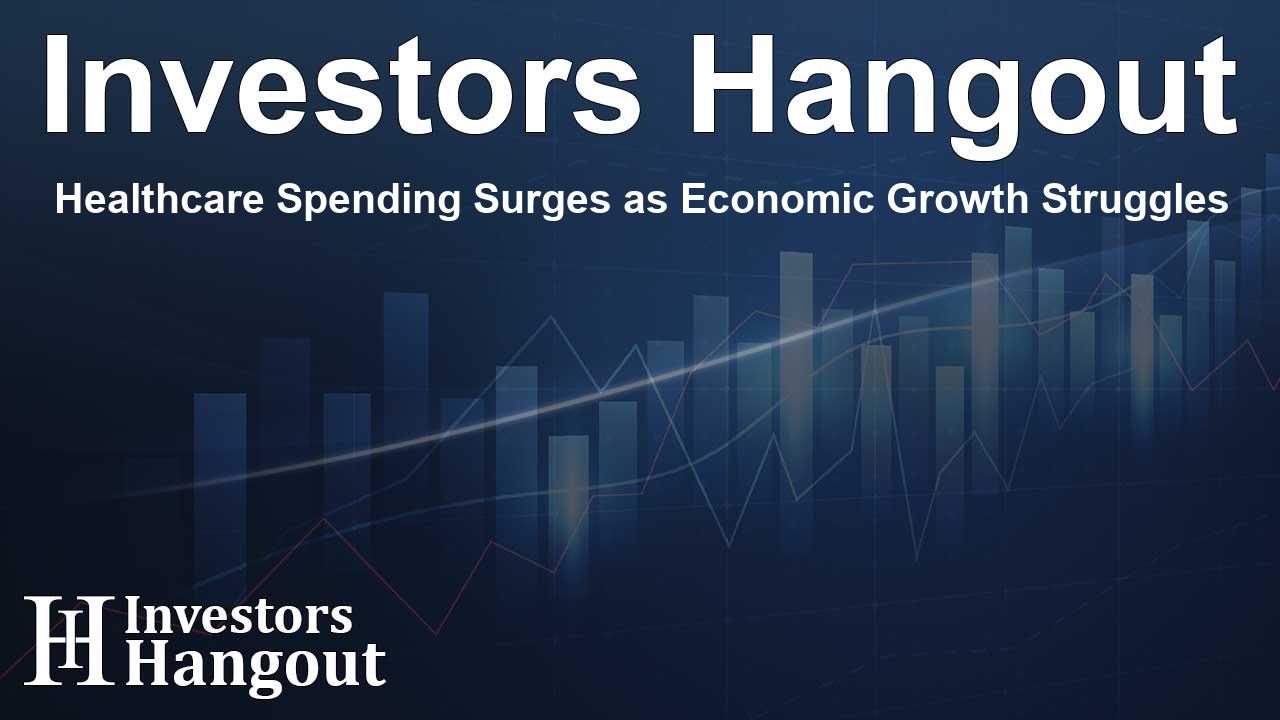Healthcare Spending Surges as Economic Growth Struggles

U.S. Healthcare Spending Rises Significantly
In recent analyses of the healthcare sector, it has been reported that U.S. healthcare spending saw an impressive increase of 7.5% in 2023, up from a 4.6% rise the previous year. This surge brings the total expenditure to a staggering $4.9 trillion, reflecting growing demand for medical services across the board.
Factors Driving Increased Spending
The rise in healthcare spending can be attributed to several key factors. Notably, there has been a marked increase in enrollment for private health plans, particularly those associated with the Affordable Care Act. As more individuals seek comprehensive healthcare coverage, the demand for services naturally escalates, leading to higher overall spending in the sector.
Impact of Medicare and Medicaid Services
The Centers for Medicare and Medicaid Services plays a pivotal role in regulating healthcare for millions, particularly for those over 65 or with disabilities. The agency's recent report underscores the importance of these programs in shaping healthcare spending trends.
Comparative Growth Against Economic Parameters
Interestingly, while healthcare spending climbs at a noticeable rate, it has outpaced overall U.S. economic growth during the same period. The inflation-adjusted growth in healthcare spending is at 4.4%, contrasting with a modest GDP growth of 2.9% in 2023. This disparity raises critical questions about the sustainability of such spending patterns as it could impact economic stability.
Future Outlook for Healthcare Economics
As healthcare spending continues its upward trajectory, the focus on balancing accessibility and affordability becomes increasingly important. Policymakers are urged to examine the implications of ongoing spending increases and to develop strategies that can accommodate rising demand while ensuring that the system remains equitable for all Americans.
Conclusion on U.S. Healthcare Trends
The trends observed in healthcare spending in 2023 not only reflect the nuances of the current economic landscape but also highlight the importance of continuous evaluation of healthcare practices and policies. With increasing enrollment and spending, the healthcare industry is at a crucial juncture that requires careful navigation to balance growth, access, and quality of care.
Frequently Asked Questions
What was the increase in U.S. healthcare spending in 2023?
U.S. healthcare spending rose by 7.5% in 2023, totaling $4.9 trillion.
What factors contributed to the increase in healthcare spending?
The rise was primarily due to higher enrollment in private health plans, especially under the Affordable Care Act, and increased usage of medical services.
How does healthcare spending compare to economic growth?
Healthcare spending grew at 4.4% inflation-adjusted rate, while GDP growth was only 2.9% in 2023.
What role do Medicare and Medicaid services play in healthcare costs?
Medicare and Medicaid services significantly influence healthcare spending, particularly for seniors and individuals with disabilities, making up a large part of total expenditures.
What is the outlook for future healthcare spending trends?
Future trends may depend on balancing rising demand for services with the need for affordable healthcare access.
About Investors Hangout
Investors Hangout is a leading online stock forum for financial discussion and learning, offering a wide range of free tools and resources. It draws in traders of all levels, who exchange market knowledge, investigate trading tactics, and keep an eye on industry developments in real time. Featuring financial articles, stock message boards, quotes, charts, company profiles, and live news updates. Through cooperative learning and a wealth of informational resources, it helps users from novices creating their first portfolios to experts honing their techniques. Join Investors Hangout today: https://investorshangout.com/
Disclaimer: The content of this article is solely for general informational purposes only; it does not represent legal, financial, or investment advice. Investors Hangout does not offer financial advice; the author is not a licensed financial advisor. Consult a qualified advisor before making any financial or investment decisions based on this article. The author's interpretation of publicly available data shapes the opinions presented here; as a result, they should not be taken as advice to purchase, sell, or hold any securities mentioned or any other investments. The author does not guarantee the accuracy, completeness, or timeliness of any material, providing it "as is." Information and market conditions may change; past performance is not indicative of future outcomes. If any of the material offered here is inaccurate, please contact us for corrections.